Atrial premature complexes (APCs) are a frequent type of heart rhythm disturbance marked by early heartbeats that begin in the atria. They are also called premature atrial contractions. A common symptom of APCs is palpitations or an unusual awareness of your heartbeat. Palpitations describe heartbeats that are unusually fast, slow, or irregularly timed. APCs happen when a heartbeat occurs earlier than the expected point in the cardiac cycle — commonly referred to as a premature beat.
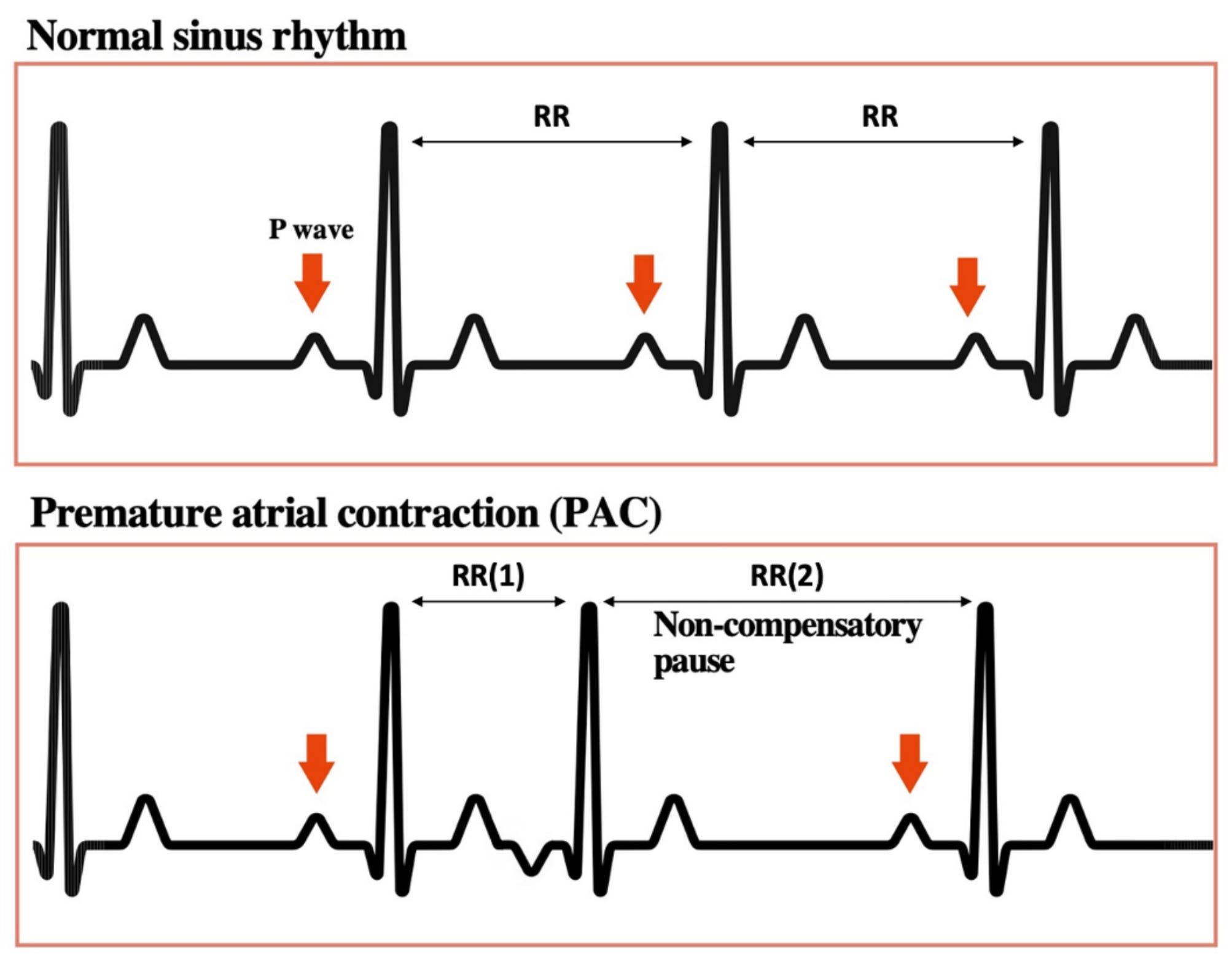
APCs often produce a sensation that the heart skipped a beat or briefly paused. In some cases, APCs occur without any noticeable sensation. Premature beats are common and are generally harmless. On rare occasions, APCs can signal a more serious cardiac condition such as potentially life-threatening arrhythmias.
When a premature beat originates in the upper chambers of the heart, it’s termed an atrial complex or contraction. Premature beats can also arise from the lower chambers; those are called ventricular complexes or contractions. The causes and symptoms of both atrial and ventricular premature beats are similar.
What Causes Atrial Premature Complexes?
The sinus node is a cluster of cells in the upper right chamber of the heart that regulates heart rate through electrical impulses. Occasionally, abnormal signals from other areas of the heart produce a beat earlier than the natural rhythm. This early beat is often followed by a pause, and then a stronger subsequent beat because the pause allows more blood to fill the chamber.
The exact cause of a premature heartbeat is often not known. Most people with APCs do not have underlying heart disease, according to Cardiac Health. However, certain factors can make premature heartbeats more frequent and noticeable, including:
- caffeine
- alcohol
- stress
- fatigue or poor sleep
- medications that list irregular heartbeat as a side effect
APCs may reflect extra electrical connections within your heart. These additional pathways can occasionally trigger irregular beats. While this can be unsettling, it usually isn’t dangerous unless premature beats occur often or significantly affect your quality of life.
At times, premature beats result from heart injury or underlying heart disease. If you suddenly begin to notice skipped beats or any new changes in how your heart feels, have your physician evaluate you to exclude a more serious condition.
What Are the Symptoms of Atrial Premature Complexes?
Many people with APCs have no symptoms and may remain unaware of premature beats. If you do feel them, you might notice one or more of the following sensations:
- a feeling that your heart skipped a beat
- a temporarily intensified or stronger heartbeat
- a fluttering feeling near the chest
The following signs can accompany APCs but may also stem from other conditions that mimic APCs. Any of these could suggest a more serious cardiac issue. Seek immediate medical attention if you experience:
- a skipping or racing sensation near the heart accompanied by fainting or lightheadedness
- profuse sweating or paleness when your heartbeat changes
- chest pain
- shortness of breath
- more than six episodes per minute of heartbeats occurring in runs of three or more
- a resting pulse over 100 beats per minute
Underlying Conditions
APCs can sometimes indicate a more serious problem. If your heart skips, races, or pounds along with any of the symptoms above, seek urgent medical care.
Potential underlying conditions include:
- dangerous arrhythmias that increase the risk of stroke or heart failure
- heart disease, including infections, congenital defects, or narrowed/blocked arteries
- hypertension (high blood pressure)
- malfunction of the valves between the heart’s upper and lower chambers
- ventricular tachycardia, a rapid heart rhythm that can lead to myocardial infarction
If premature beats occur sporadically without other symptoms, they are probably benign. Nonetheless, consult a clinician whenever you notice a new or unexplained sensation in your heart that hasn’t been discussed with your doctor.
How Are Atrial Premature Complexes Diagnosed?
If you report sensations of skipping, racing, or pounding heartbeats, your doctor will begin by asking questions about when the symptoms began and what you were doing at the time. They will also review your medical history.
Certain risk factors for heart disease may prompt a more detailed evaluation even if APCs are the only symptom, such as:
- diabetes
- high cholesterol
- high blood pressure
- overweight
- smoking
- a family history of heart disease
During a physical exam, your physician will look for signs of underlying issues and assess heart function. This may include listening to your heart, blood tests to evaluate chemistry and cholesterol, and measuring blood pressure.
If your exam suggests a heart problem that could be causing APCs, your doctor will monitor your heart rhythm to identify patterns. An electrocardiogram (EKG) records the heart’s electrical activity and can be done at rest or during exercise.
You may also be asked to wear a monitor for 24 to 48 hours or during symptomatic periods. This portable device is worn under clothing and records your heart rhythms while you go about daily activities.
What Are the Treatments for Atrial Premature Complexes?
Contact your doctor whenever you notice a new change in your heartbeat that has not been previously addressed. Most APCs require no treatment beyond an initial assessment. If your clinician determines the APCs are benign, you likely won’t need additional visits unless they become frequent, are accompanied by other symptoms, or your doctor advises otherwise.
When APCs are judged harmful, treatment focuses on the underlying condition producing the premature beats. Your doctor will tailor a treatment plan based on the evaluation findings.
Occasionally, otherwise harmless APCs occur so often that they interfere with daily life. In such cases, your doctor might prescribe medications like beta blockers or antiarrhythmic drugs used for more severe rhythm disorders. These medications generally reduce the incidence of premature contractions.
How Can I Prevent Atrial Premature Complexes?
You can reduce benign premature beats by avoiding substances such as recreational drugs, tobacco, alcohol, and excessive caffeine. Regular aerobic exercise is beneficial for heart health. Because anxiety can trigger APCs, work on stress reduction techniques or discuss anti-anxiety options with your physician. If you are overweight, pursue a heart-healthy weight-loss plan. When seeing a new provider, inform them of your history so they can avoid prescribing medications that may worsen APCs.


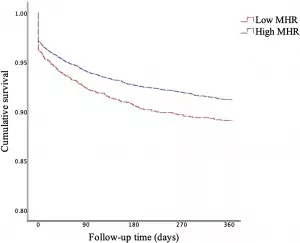

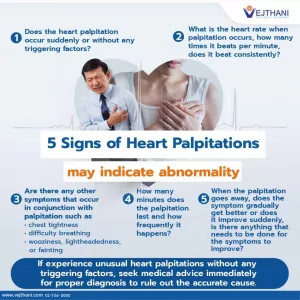
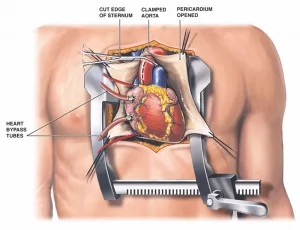
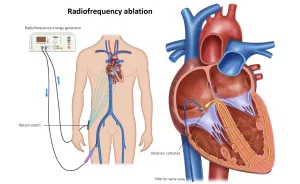
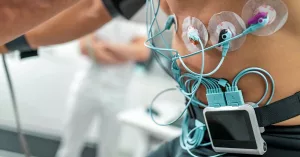

















Leave a Reply
You must be logged in to post a comment.